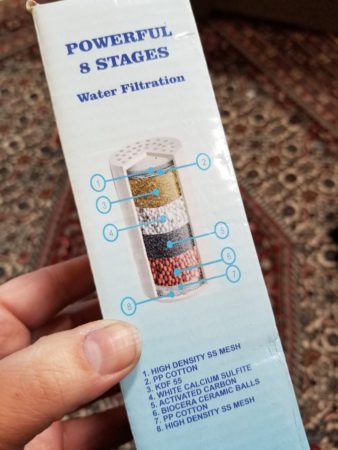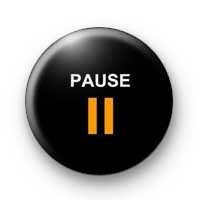It was a heartbreaking season in my life.
I’d been given some prophetic promises about an area of my life. God had declared some beautiful things: unity and power and intimacy and victory. Yeah, it was a lot of “the usual stuff,” but it came in a declaration from God. Actually, it came in two or three declarations; this wasn’t just a warm and fuzzy thought from one person.
We’ll pause here for a definition. When I talk about a “declaration from God,” that might be a prophetic word; those are the best, and I give them the most weight: when someone with a known gift of prophecy says, “This is what God says,” and the community judges it to be true (1 Corinthians 14:29), that’s the gold standard of prophetic revelation in my view.
But the idea of a declaration from God includes what I hear God whispering to me, and it includes those times that something from the pages of Scripture leap alive and demand my attention. They include when friends tell me what they hear God saying about me, and when the promises of scripture actually, contextually apply to me.
As I said, I had two or three of these, including both the prophetic words and the whisper of my Father. There was a good bit of unity among the declarations. I trusted them.
And then things began to go to hell. I wish I spoke metaphorically. Without putting too fine a point on it I’ll say that just when I expected the promises to begin to manifest, to show up, just when I expected to see things turn toward unity and power and intimacy and victory, they turned the opposite direction.
It was a heartbreaking season in my life. You see, this was an area that was really quite important to me. This was no cute little bonus.
I ran through the demonic logic tests: Can God be trusted? Is he really a good God? You know that list. They came at me hard and fast, and I threw them back in his face just as hard, declaring God’s goodness, his trustworthiness, and my confidence in Him. I went further and rebuked every demon I could think of from every aspect of this promise. I felt victorious!
I thought, There. That will do it. And the promises down-shifted for better acceleration into oblivion.
My heart was crushed, but still I held on. I began to ask better, more honest questions: Did I assume God had promised this, when in fact he had not? No, he’d been quite clear.
Were the promises for right now, or was I rushing him? That one was tougher, as he’d never actually given a date, but if this trend continued, then there was no chance of fulfilling them later.
Was I imposing my own definition of what these fulfilled promises needed to look like? Maybe the fulfillment was so different than my expectations that I didn’t recognize it. I searched my heart long and hard on this, and I examined the circumstances. No, the failure was real. This wasn’t just my misinterpreting it.
My life was pretty much over. I nearly gave up.
And then something whispered in the back of my mind. It was a quiet little whisper, easy to miss. “I want you to give thanks for my promises as if you were already walking in the fullness of their fulfillment, as if everything I said has already happened, even though you’ve seen nothing yet.”
It took rather a lot to take the voice seriously, and it took even more to do what he said. But I did.

In those days, I took my lunch hours in a remote meadow. I parked my truck, and since I pray best when I walk, I’d worn a trail into the grasses and shrubberies of the meadow.
I began to pace my trail, questioning my sanity, and mumbling thanks for these hallucinations, these promises. I recognized the failure of my prayer, so I began to pray out loud. That was better, but I could tell I wasn’t to the point of actually engaging my faith yet.
So I began to shout. It was hard, and it took me days to get there, but before long, I fairly flew into that meadow, locked up my parking brake, and before the truck had fully stopped, I was on that trail, roaring my thanks for these promises, for the glory of having been my experience, for the power that had been unleashed. I screamed my gratitude for a victory I had not yet seen, and I wept in thanksgiving for the intimacy that I still only imagined.
Over the next days and weeks, I watched several changes. The first were in my heart. Eventually, my empty declarations of faith began to actually fill with faith, and I began to understand that I was waging war with these promises (1 Timothy 1:18). Not long after, I realized that the things that I was declaring that had not yet happened, they were going to happen. I began to expect, not fearlessly, not solidly, but I began to expect to see things change.
My prayers expanded. I spent my spare time thinking of what that will look like when these promises are fulfilled, and I prayed every answer to that. By now, I was thankful that my meadow was remote, and occasionally, I checked the trees near the meadow, to make sure I hadn’t roared their bark off.
And still I prayed. I walked and prayed and shouted and demanded and wept and gave thanks like there was no tomorrow.
And then things did begin to change. It was like lighting a match to the tinder of a well-set fire: the change was so very small and fragile, and the slightest breath would extinguish it. I said nothing of this to anyone, so as to not blow out my precious flame, but I gave myself to serving that tiny, flickering flame, nurturing it the best I could.
But gradually, over months and years, it did turn, and today I can say I’ve been walking in the fullness of many of those promises for many years.
I’ve also noticed a change in me. I’m quicker to give thanks than I ever used to be. I think I like that.











